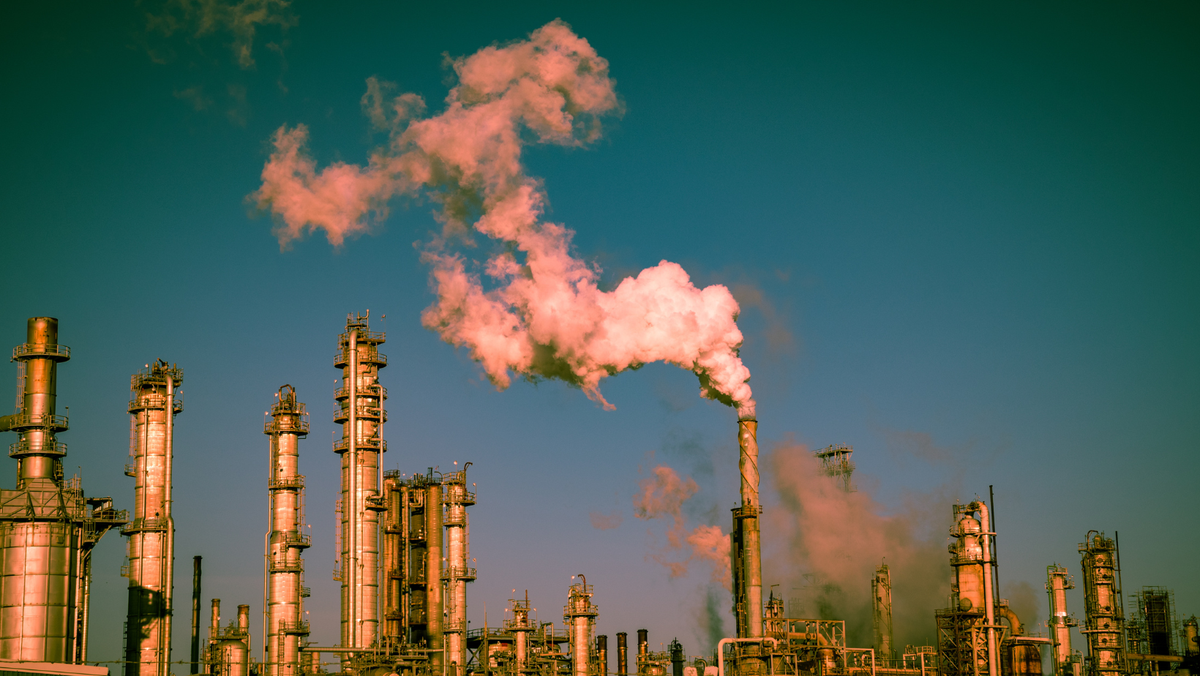Tax incentives start rush for carbon capture projects
Subsidies to capture and inject carbon underground doubled through last year’s federal Inflation Reduction Act. What happens when that money goes away?

Published in the Louisiana Illuminator, the Lens
For years, fossil fuel companies have been reluctant to build carbon capture facilities, except to recover oil, because it was too expensive. Now, with the aid of a federal tax credit in the 2022 federal Inflation Reduction Act, they are lining up to capture and store carbon with the potential to make billions of dollars in profit.
In Louisiana alone, more than two dozen facilities have been proposed.
Carbon capture and sequestration (CCS) will become a profitable tactic that fossil fuel companies can utilize to reduce their carbon footprint thanks in large part to the tax credits in the 2022 federal Inflation Reduction Act.
But energy market analysts say the need for federal subsidies to make the projects, more than 20 of which are proposed in Louisiana, viable is another reason the public should be side-eyeing the aggressive push to capture and inject carbon emissions underground.
“What happens if those incentives decline or go away?” says Suzanne Mattei, an energy policy analyst for the Institute for Energy Economics and Financial Analysis, a nonprofit group that examines trends and policies related to the energy market. “This is a technology that appears to need permanent life support to keep it going.”
Under the recent federal legislation, the tax credits are set to expire 12 years after a facility goes into operation.
Mattei and other experts are already calling into question industry insiders’ claims that carbon sequestration projects will actually reduce the amount of emissions, while other groups call the projects a way to greenwash fossil fuels.
These new questions about carbon capture are fueling a growing opposition to CCS, which has also been scrutinized over its energy and water use, potential groundwater contamination and public safety following a CO2 pipeline rupture in 2020.
Leaders with Together Louisiana, a coalition of faith-based and civic groups that has led politically charged fights around tax fairness and environmental justice issues, are questioning the incentives.
“It’s them saying ‘let’s try to figure out if this can be part of the solution’ but there are more questions than answers at this point,” said Erin Hansen, a staff analyst with Together Louisiana.
The head of a Louisiana oil and gas association recently said carbon capture will create high-paying jobs and give Louisiana the opportunity to be the leading face of clean energy.
“The state of Louisiana has, in our opinion, rightfully, decided to promote CCUS in this state,” Mike Moncla, president of the Louisiana Oil and Gas Association, wrote in an email to Floodlight.
The 2022 law increased the amount of credit a fossil fuel company could earn for injecting their CO2 emissions underground from $45 a ton to $85, with the potential to reach $180 a ton. The law also extends the construction deadline for carbon capture projects from 2026 to 2033 and lowers the threshold on the amount of CO2 projects must capture annually.
The industry also doesn’t have to prove that the technology is working as promised. Under the Inflation Reduction Act (IRA), the industry self-reports to the U.S. Department of Energy how well the technology is working to reduce emissions. It’s a process watchdog groups have said needs better oversight.
“If a power plant says they will capture 95% of the CO2 they emit, under the IRA, they only have to show they can capture at least 65% and they get the subsidies,” notes David Schlissel, director of resource planning analysis at IEEFA. “How do they achieve that? They control the information about how well they’re doing.”
Critics of CCS point to projects including Chevron’s mega project in Australia, which failed to capture the percentage of CO2 the gas company initially claimed.
If the same happens here, Mattei doubts taxpayers will tolerate the federal government dishing out huge incentives for carbon capture projects. And when those incentives dry up, fossil fuel companies will likely abandon CCS projects and return to business as usual, she said.
“With any tax credit programs, you need transparency and accountability for the public, and I’d advise clawback provisions so that if the terms aren’t met, taxpayers are protected,” said Steven Procopio, policy director for the Public Affairs Research Council of Louisiana, a private nonprofit government watchdog group.
Floodlight depends on a community of readers like you who are committed to supporting nonprofit investigative journalism. Donate to see more stories like this one.


